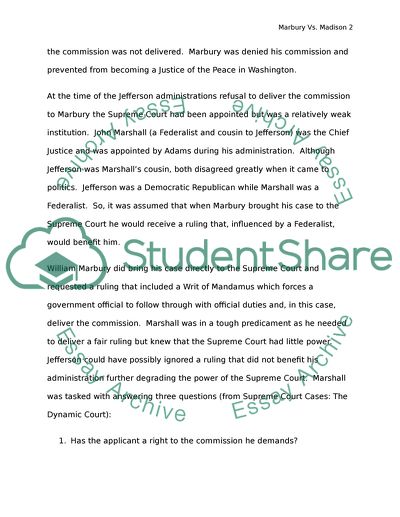Cite this document
(“Marbury v. Madison Essay Example | Topics and Well Written Essays - 1250 words”, n.d.)
Marbury v. Madison Essay Example | Topics and Well Written Essays - 1250 words. Retrieved from https://studentshare.org/miscellaneous/1540640-marbury-v-madison
Marbury v. Madison Essay Example | Topics and Well Written Essays - 1250 words. Retrieved from https://studentshare.org/miscellaneous/1540640-marbury-v-madison
(Marbury V. Madison Essay Example | Topics and Well Written Essays - 1250 Words)
Marbury V. Madison Essay Example | Topics and Well Written Essays - 1250 Words. https://studentshare.org/miscellaneous/1540640-marbury-v-madison.
Marbury V. Madison Essay Example | Topics and Well Written Essays - 1250 Words. https://studentshare.org/miscellaneous/1540640-marbury-v-madison.
“Marbury V. Madison Essay Example | Topics and Well Written Essays - 1250 Words”, n.d. https://studentshare.org/miscellaneous/1540640-marbury-v-madison.


